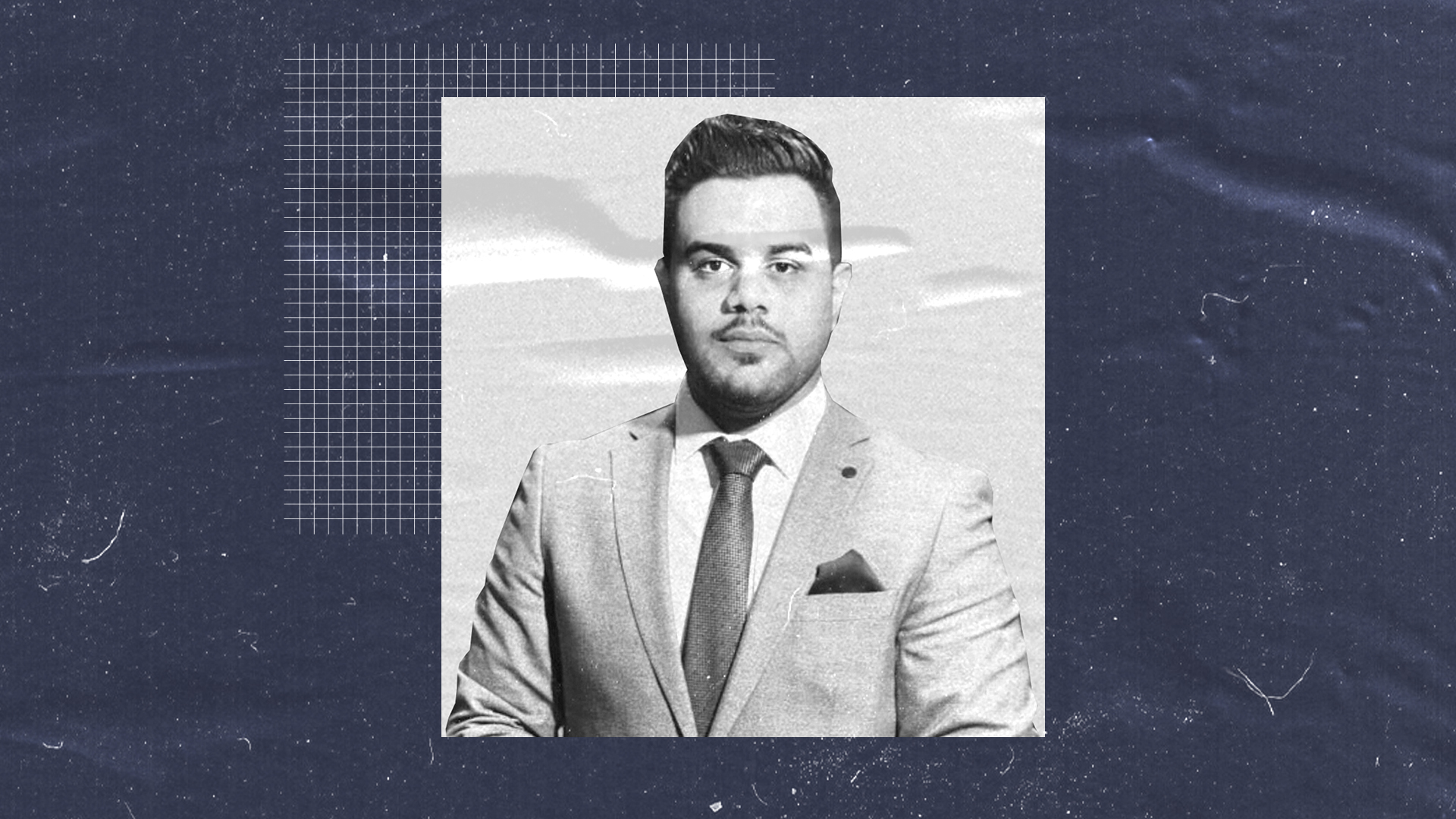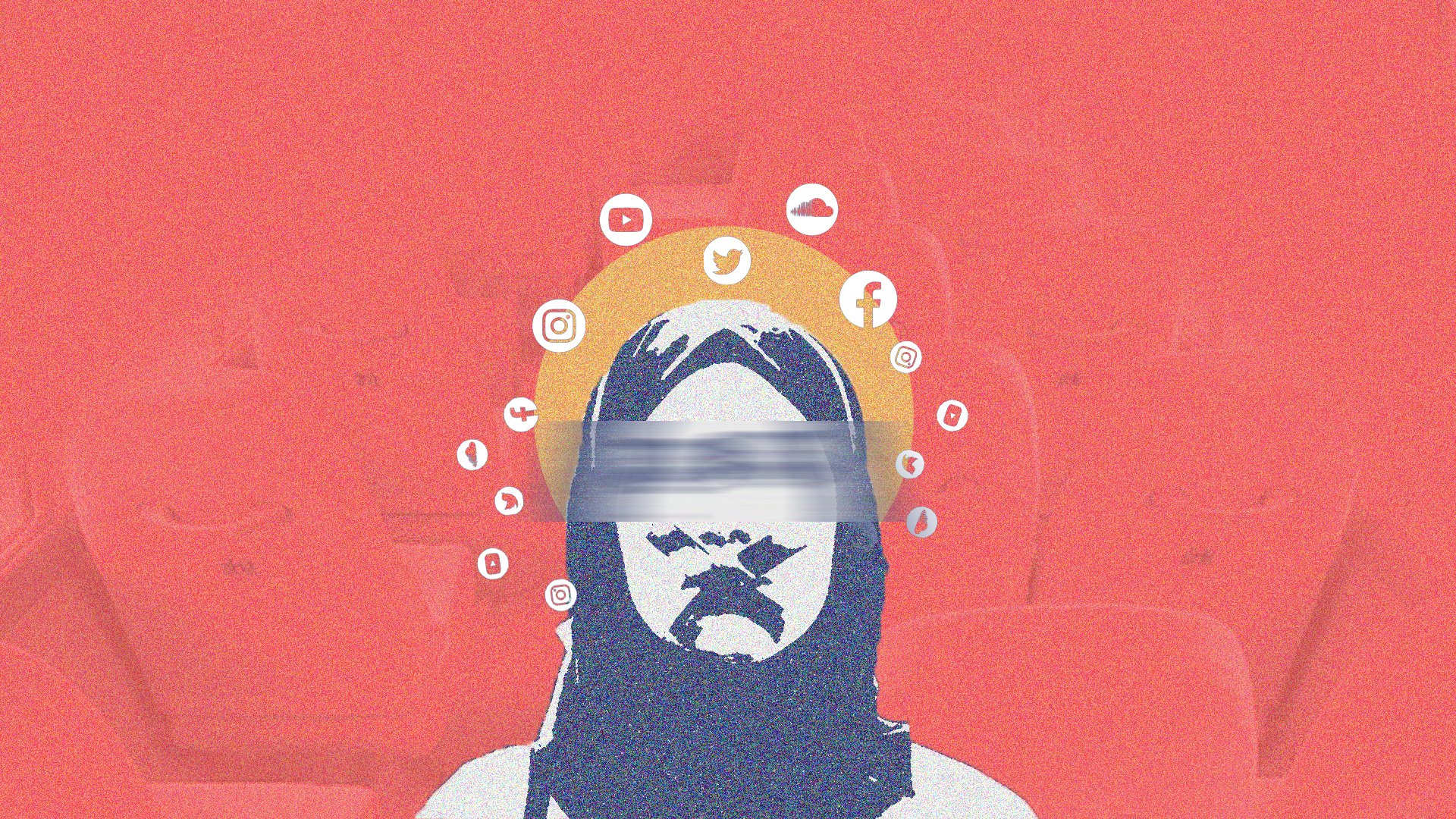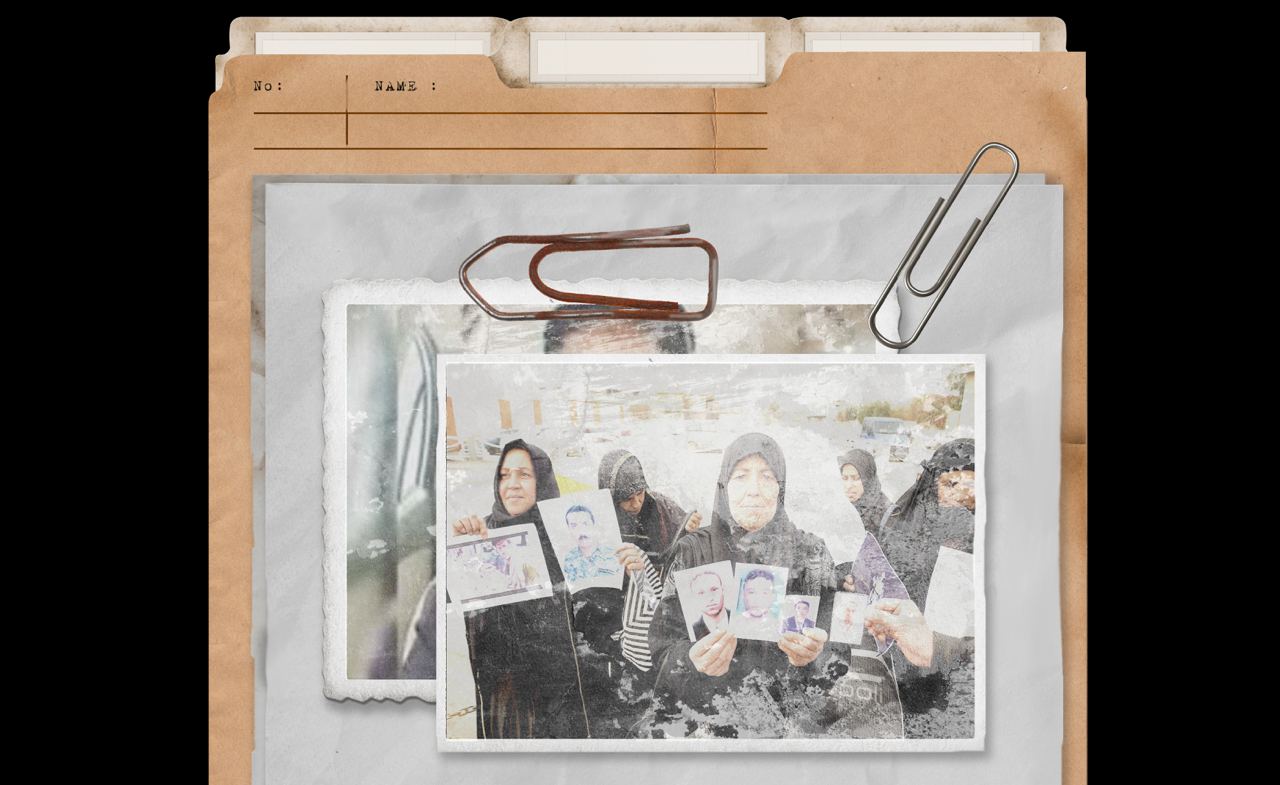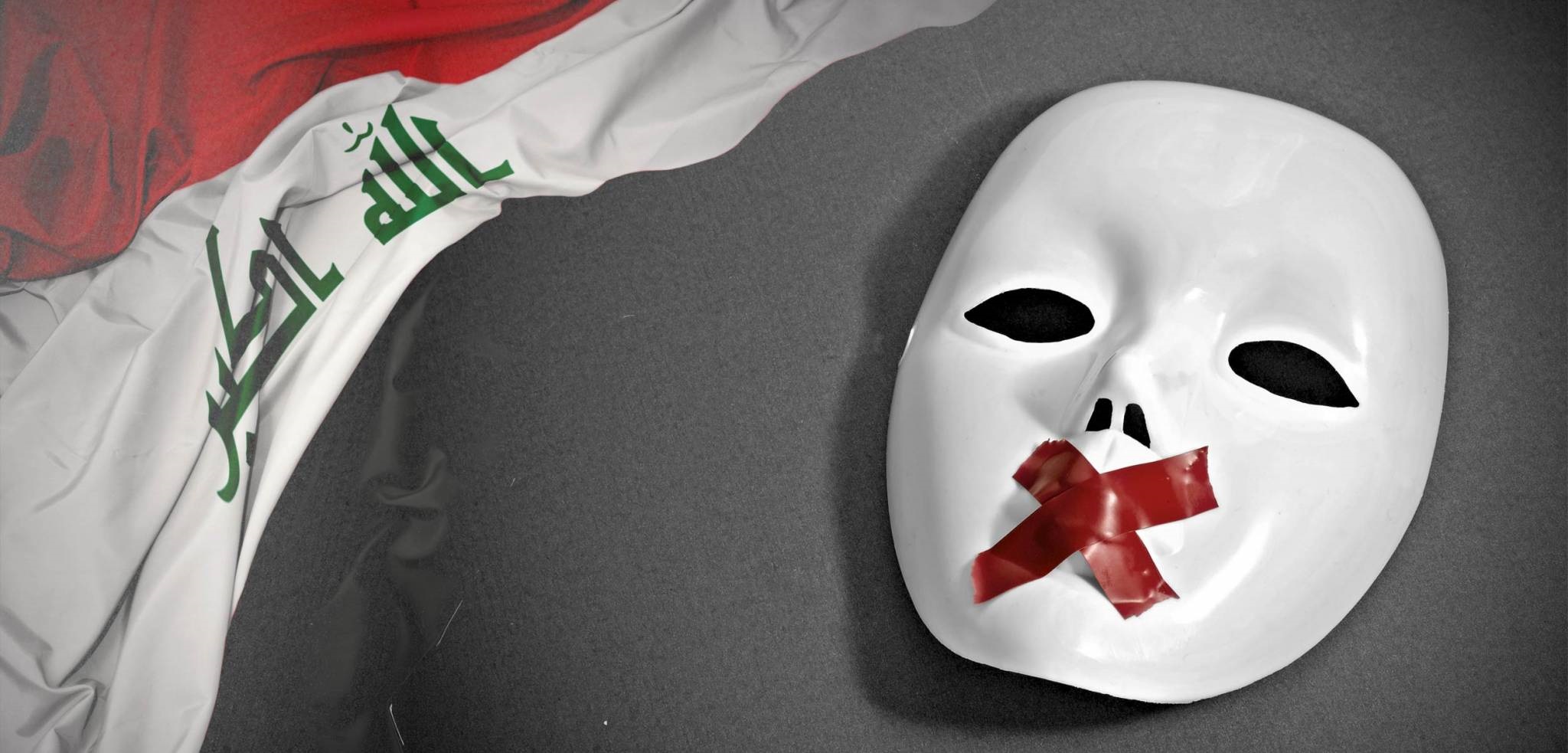The Iraqi Observatory for Human Rights, on February 25, 2023, stated that an Iraqi journalist might be sentenced to prison over preparing a TV report about medical errors in Iraq that have led to citizens’ deaths.
Ali Abdul-Karim is a journalist who works for the Al-Fallujah TV channel.
On January 26, 2023, Abdul-Karim produced a TV report titled “Medical Errors: Doctor kills patients in gastric sleeve procedures.” In his report, Abdul-Karim featured two testimonies from the mother and brother of one of the deceased patients. However, he did not mention the name of any doctor nor that of a clinic or hospital relevant to this case.
Despite this, a doctor who performs gastric sleeve operations in the Iraqi capital Baghdad lodged a lawsuit against Abdul-Karim. The journalist says that the doctor, whose name shall not be revealed for reasons relating to the lawsuit, is accusing him of defamation and slander even though Fallujah TV’s report did not name or point fingers at any person or medical institution.
In the testimony he gave to the Iraqi Observatory for Human Rights Abdul-Karim stated, “On February 19, 2023, I traveled to the capital of the Kurdistan Region of Iraq (KRI), Erbil, to follow up with the lawsuit that was filed against me and the channel I am affiliated with. The lawsuit was filed against me due to a TV report that I had worked on over a year ago, which included a plea from a family whose son had died due to a medical error that occurred while he was undergoing a sleeve gastrectomy (gastric sleeve).”
Abdul-Karim added, “At nine o’clock in the morning of February 19, 2023, I went to the Bakhtiari Police Station in Erbil governorate. After being informed about the lawsuit against me, my testimony was taken, and I was transferred to a court of law. I was handcuffed and led by three security officers to a judge who asked me about the lawsuit. I asserted to the judge that I did not target the doctor in any way, nor did I name him or the place he works at.”
Abdul-Karim added, “I was still handcuffed when I left the courtroom. People were staring at me as if I had committed a crime. I was then taken back to the police station and detained in a cell, as would any criminal awaiting a judge’s decision. Three and a half hours later, the judge released me on bail after completing the lawsuit requirements, which included fingerprinting at the forensic evidence department.”
The journalist, Ali Abdul-Karim, did not mention the name of the doctor suing him. Despite so, the doctor’s lawyer built his case on shares and comments made by citizens on the TV report. Accordingly, the journalist should not bear any legal consequences over what others wrote on a public social media page allowing all users to comment.
Speaking to the Iraqi Observatory for Human Rights, Abdul-Karim’s attorney stated, “The case lodged against my client was filed per Article 9 of Law No. 35 of 2007, the Press Law in the Kurdistan Region of Iraq.” Article 9 of the KRI Press Law punishes journalists involved in “Sowing malice and fostering hatred, discord, and disagreement, as well as insulting religious beliefs and offending the religious symbols and sanctuaries of any religion or sect.” Article 9 also punishes any offenses “related to the secrets of the private lives of individuals, even if true, if it offends them, in addition to slander and defamation.”
However, Abdul-Karim did not commit any of these legal offenses; he merely produced a TV report in which he did not offend anyone.
Therefore, the Iraqi Observatory for Human Rights stated, “The Iraqi law does not punish anyone over what others did or wrote. For this reason, the lawsuit against Abdul-Karim is seen as an attempt of incrimination and intimidation of journalists to discourage them from reporting on people’s suffering, especially that caused by medical errors and exploitations.”
Moreover, the Observatory notes, “Article 38 of the Iraqi constitution guarantees the ‘Freedom of the press, printing, advertisement, media, and publication,’ and this freedom cannot be restricted by lawsuits which lack legal infractions.”
Wissam Al-Mulla heads the Press Freedom department at the Iraqi Observatory for Human Rights.
Mulla says, "What Fallujah TV correspondent Ali Abdul-Karim was subjected to is alarming and dangerous, especially when he was handcuffed and led to a prison cell and detained without a clear conviction. We regard this as an attempt to muzzle journalists and restrict their work.” Mulla added that “The report prepared by Abdul-Karim did not include an accusation against the doctor, nor did it make mention of his name and the medical institution he is with. However, the report was significant, especially since it touched on a dangerous topic concerning citizens’ lives.”
The head of the Observatory’s Press Freedom department also highlighted that “The real danger lies in the noncompliance of Erbil courts with the directives of the head of the Supreme Judicial Council [Faiq Zidan], who had ordered that no journalist would be arrested, but rather that legal mechanisms would be adopted in cases when journalists would be summoned. Therefore, we hope that the Supreme Judicial Council stands by journalists and supports their right of access to information and in their pursuits to uncover corruption cases and expose them to the public.”
On August 11, 2020, the head of Iraq’s Supreme Judicial Council, Faiq Zidan, asserted the significance of meticulously handling complaints against journalists. In an official letter sent to Iraqi courts, Chief Justice Zidan stated, “Methods of forced attendance under the Criminal Procedure Code No. 23 of 1971 firstly begin with Article 87 and following articles which stipulate that a letter to summon for attendance ought to be delivered to the person complained against.”
According to the document issued by his office, Chief Justice Zidan added that “If [the person complained against] fails to attend without any legitimate reason, the court shall issue an arrest warrant. Therefore, it should be noted that the issuance of arrest warrants should not be hastened merely by lodging a complaint. Rather the requirements stipulated by law should be followed per legal order.”
The Iraqi Observatory for Human Rights thus urges the governorate of Erbil to do justice to journalist Ali Abdul-Karim and not to hold him accountable for what others wrote. The Observatory also asserts that no law in Iraq punishes people for the doings of others, that is, if comments and shares of citizens via social media platforms were indeed considered “illegal.”




